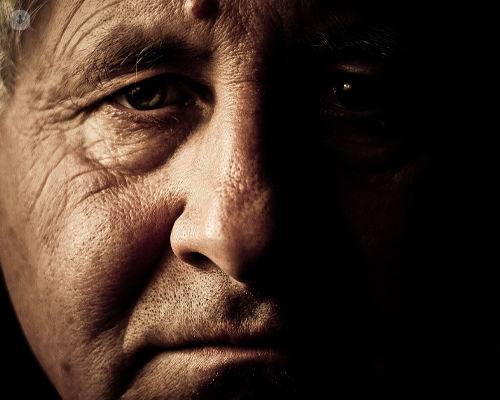How can I recognise the signs of colorectal cancer?
Escrito por:Colorectal cancer, also known as bowel cancer, affects the colon or rectum and is one of the most common cancers in the UK. Early detection significantly increases the chance of successful treatment, making it important to recognise the signs and symptoms. Leading consultant colorectal surgeon Mr Rajeev Peravali discusses how understanding these early warning signs can lead to prompt diagnosis and treatment.

What are the most common symptoms of colorectal cancer?
Change in bowel habits
A persistent change in bowel habits is one of the most common early signs of colorectal cancer. This can include diarrhoea, constipation, or a feeling that the bowel doesn’t empty completely. A change that lasts for more than a few weeks should be taken seriously.
Rectal bleeding or blood in stools
Seeing blood in your stool can be alarming and is often one of the first signs of colorectal cancer. This may appear as bright red blood or dark, tarry stools. While rectal bleeding can also be caused by conditions like haemorrhoids, it’s important to seek medical advice if you notice this symptom.
Unexplained weight loss
Sudden, unintentional weight loss without any obvious cause can be a sign of colorectal cancer. Cancer can affect the body’s ability to absorb nutrients, leading to weight loss, and can also increase the body’s energy expenditure.
Fatigue
Chronic tiredness or weakness, even with adequate rest, can be a sign of cancer. Colorectal cancer may cause internal bleeding, leading to anaemia, which results in feeling fatigued or weak.
Abdominal pain or discomfort
Colorectal cancer can cause cramping, bloating, or pain in the abdomen. This discomfort may be constant or come and go. If the pain is persistent, it’s important to consult a doctor for further investigation.
Are there less common signs to be aware of?
A persistent urge to have a bowel movement
Even after having a bowel movement, you may feel like you still need to go. This sensation can be a result of a tumour causing irritation in the rectum.
Narrow stools
If your stools suddenly become narrower than usual, this could be a sign of a blockage caused by a tumour in the colon or rectum. While this can be caused by other conditions, it’s worth discussing with a healthcare professional.
Nausea or vomiting
In more advanced cases, a tumour can cause an obstruction in the bowel, leading to nausea, vomiting, or bloating.
When should I see a doctor?
If you experience any of these symptoms, especially if they persist for more than a few weeks, it is crucial to seek medical advice. Early detection through screening, such as colonoscopy, is key to improving outcomes for colorectal cancer. Many of these symptoms can be caused by less serious conditions, but only a healthcare professional can rule out cancer as the cause.
Are you concerned you may have colorectal cancer? Arrange a consultation with Mr Peravali via his Top Doctors profile.


